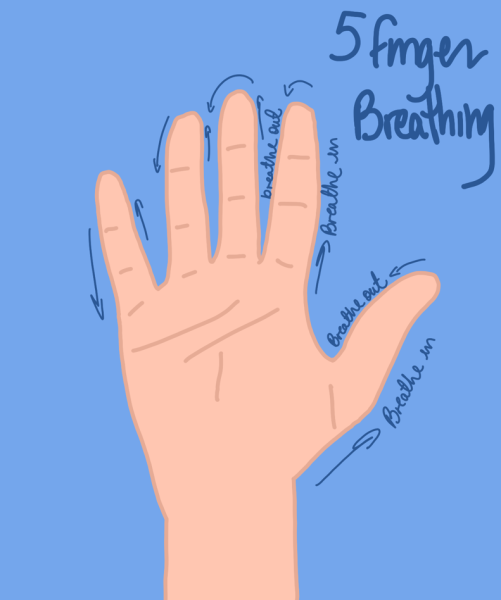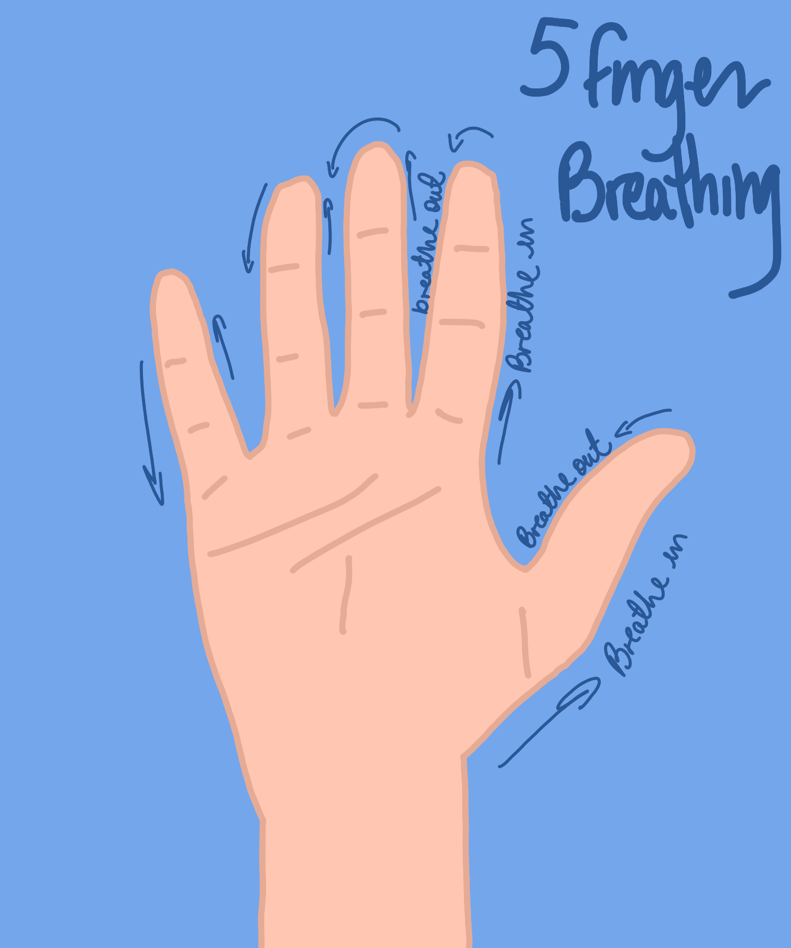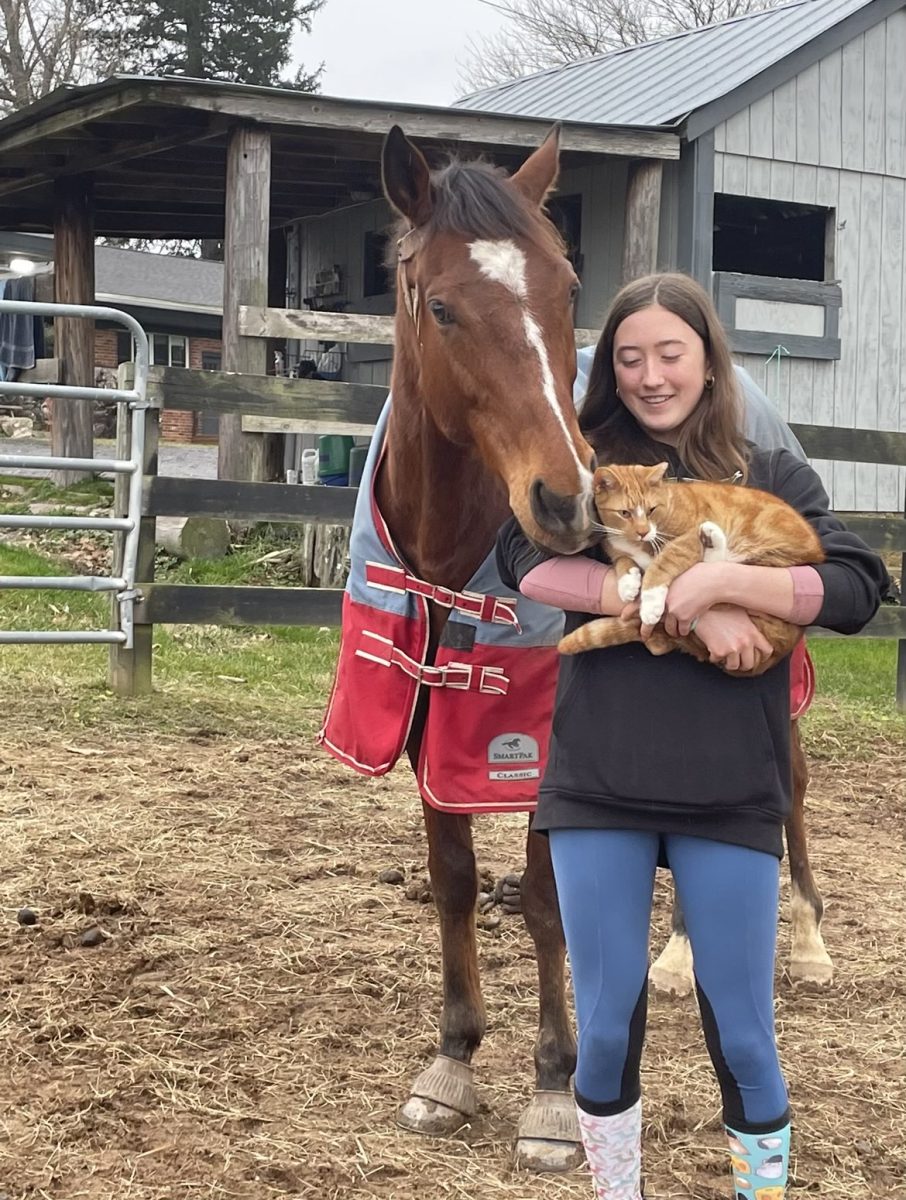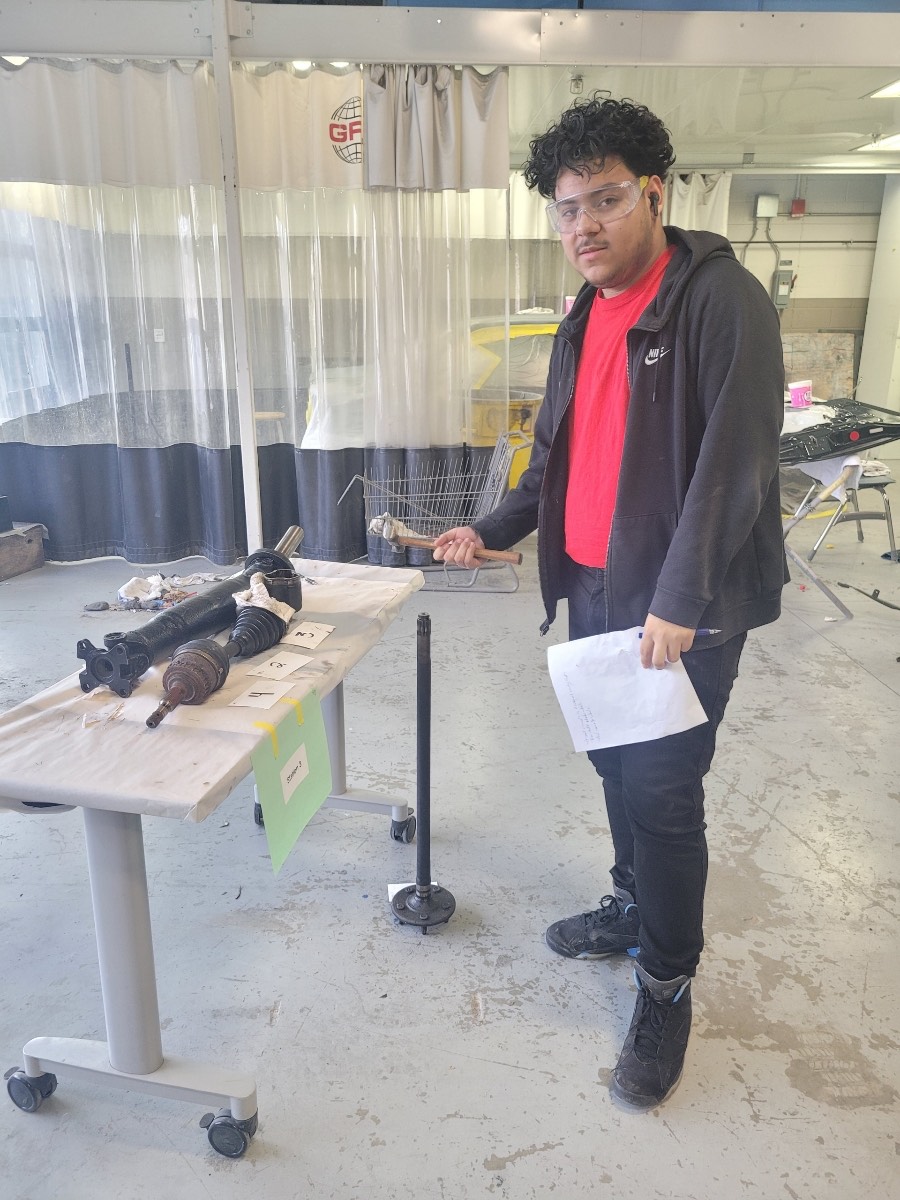
Many students find junior year to be the most anxiety-producing year of high school. It is the year when the number of AP classes, standardized tests and tears hit their peak. The word “stress” resonates strongly with juniors, triggering breakdowns in students who seem to have everything going for them. Stress finds its home in the student’s train of thought during high-tension situations. WJ’s immensely diverse student body provides disparate coping mechanisms for stress, whether it be procrastination, chipping away at the problem by directly fixing it or taking mental health breaks. However, one natural remedy for stress that tends to be overlooked involves the presence of a furry friend.
Being around dogs has been shown to improve mood and provide unconditional affection. It also encourages exercise, which leads to health benefits such as reduced blood pressure and stronger joints and muscles. Spending time with cats does this as well, but not the same level as dogs. Studies show that because of the dog’s childlike enthusiasm, playful disposition and higher activity levels than felines, dogs reduce stress more than any other pet.
Junior Ryan Cirillo owns an eight-year-old Border Terrier named Mocha. He believes that the main stressors in his life, precalculus and social group conflicts are mitigated by Mocha’s presence.
“I can’t imagine cats are good at relieving stress because they tend to be less friendly, which is why I like dogs more,” said Cirillo. “My pet plays a role in reducing stress, particularly interpersonal relationships because my dog can usually tell if I’m upset.”
Having a pet for nearly a decade has made Cirillo not only worry less, but also realize a deeper meaning to life.
“I believe owning a pet does reduce stress and stressors because having such a carefree animal walking around the house reminds me that the world is ultimately about happiness and not about the test I have the following day,” said Cirillo. “I think the best part of having a pet is when your pet does cute things randomly as well as observing their behavior and intelligence.”
Junior Matthew Broocke owns both a dog and a cat. He has an 11-year-old female mixed-breed dog named Shelby with a reserved temperament, and an eight-year-old male cat with an aggressive demeanor. While Broocke agrees that, in general, pets reduce the stress in his life (lack of sleep and free time) and are sociable and interactive companions, he stands by a different opinion.
“Being both [a dog and cat owner], I feel [like both pets reduce stress levels] about the same,” said Broocke. “While cats may be more low energy, calming one down, dogs may provide more friendly interaction which also helps with stress [and] mood.”
Junior Valeria Kaufman, owns neither a dog nor a cat. As a result, she may not have directly received the health benefits pets provide.
“When I am stressed, I tend to be very quiet and otherwise moody,” said Kaufman. “My personality does change for the worse, and I become very irritable and critical of others. Physically, I will have a frown on my face and look quite tired.”
The presence of a pet could be a coping mechanism for Kaufman’s stress with personal relationships and academics. She has strongly considered getting a dog, although it is not her decision in the end.
“My parents don’t want the responsibility,” said Kaufman. “I do think pets can relieve stress. It is very calming to pet animals, especially if they’re very soft, and the feeling of loyalty and love is very comforting and relaxing.”
The concept of dogs helping anxiety alleviation is taken to the next step at the Naval Hospital, part of the Walter Reed National Medical Center in Bethesda. An assortment of therapy dogs are available at the hospital to comfort wounded veterans who may be physically injured or psychologically ill as a result of exposure to war. Any dog over the age of one has the potential to be a therapy dog to help get patients back on their feet. The pet therapy program at Walter Reed is part of the Red Cross Service to the Armed Forces (SAF) program and takes stress reduction to a more interactive approach than the usual lapdog in the house.



![Sophomore Mason Lee encompasses the persona of his character, Enjolras, during a rehearsal of Act One. I think [rehearsals are] going well and were very on track [with the squedule]... which is good, Student Assistant Director senior Neena Tavik, who is also playing Eponine, said. (Courtesy Sasha Rotton)](https://www.wjpitch.com/wp-content/uploads/2024/03/24466917-801C-45FE-A882-D818DABBDCB8-600x451.jpg)

![Since the collapse of the Baltimore Bridge in late March, federal law enforcement has began investigating what preceded the event. In a statement to CBS News, a spokesperson for the FBI said, [The] FBI is present aboard the cargo ship Dali conducting court authorized law enforcement activity. There is no other public information available and we will have no further comment. (Courtesy Isaac Smay via Flickr)](https://www.wjpitch.com/wp-content/uploads/2024/04/53619368036_399400003a_b-600x400.jpg)










